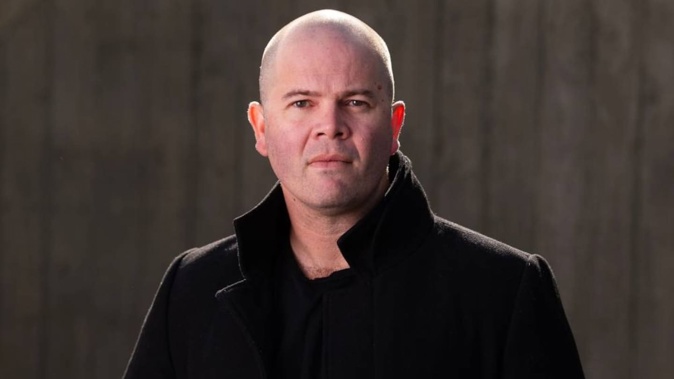
Larger volumes of P are making their way into New Zealand than ever, the appetite for drugs among vulnerable Kiwis is becoming “insatiable”, and assassination-style killings are becoming increasingly commonplace, organised crime journalist Jared Savage warns.
The comments come after the release of the NZ Herald investigations reporter’s new book Underworld: The New Era of Gangs in New Zealand, which takes a closer look at the escalation of gang activity on our shores.
Savage is one of the country’s leading investigators of gang activity, having also written Gangland and Gangster’s Paradise, detailing some of the most shocking stories from Aotearoa’s criminal underworld.
 Underworld: The new era of gangs in New Zealand, by Jared Savage.
Underworld: The new era of gangs in New Zealand, by Jared Savage.
In an interview with Newstalk ZB’s Real Life with John Cowan on Sunday night, Savage said gangs have undergone a “continual kind of escalation” in recent years.
“The underworld, the drug trade gangs, cartels, Asian crime syndicates – it’s showing no sign of abating. In fact, New Zealand’s appetite for drugs in particular seems insatiable,” he said.
“Police and ESR scientists can test the wastewater to see how much meth or other drugs are being consumed on a weekly basis. For a long time, we were around the 15kg mark each week… but in the back end of last year, that figure more than doubled to nearly 40kg a week.
“And this is happening at the same time that the Police and Customs are doing a great job, making huge busts, seizing more drugs than ever before.”
Savage said when he first started writing for the NZ Herald two decades ago, catching 1kg of meth at the border was “a huge deal” and would make front-page news – but no longer.
“[Now] the smallest dealer on the street would have 10 times that in the back of their car. We’re talking 100-700kg imports now,” he told Real Life.
“Those are the ones they’re catching; I wouldn’t like to say that that’s the biggest, because I think probably some of the biggest ones have slipped through the border.”
Savage told Cowan the increase in drugs coming into New Zealand is a big issue, having a major impact on social issues, poverty, unemployment and youth suicide – “quite heavy things which are not easy to solve”.
He says one of the biggest changes in organised crime in New Zealand, detailed in Underworld, is the rise of the so-called “Nike Bikey gangs” – a new, slicker generation of criminals that are vastly different from their counterparts in the 1980s and ‘90s.
“A lot of established gangs that you’d recognise on our roads or around the places where you live were sort of ragtag, scruffy, leather-wearing, greasy-haired motorbike kind of guys,” he said.
“It’s sort of evolved in the past sort of five to 10 years … a lot of these guys are younger, good-looking, clean-cut. They go to the gym, they look good, they’ve got great clothing and beautiful girlfriends and they’re putting it all over Instagram.
“It’s quite a different shift, which is possibly in tune with wider society as well.”
This shift – which is at least in part a result of the influx of 501 deportees from Australia arriving on our shores – has also brought an increase in execution- and assassination-style hits, says Savage.
“Don’t get me wrong, New Zealand criminals and gang members have always used firearms or had them in their possession, largely for intimidation purposes or protection,” he told Real Life.
“What we’ve seen in the last five years is more of a penchant for using them, and that’s led to retaliation, tit-for-tat stuff. I’m actually amazed that more innocent people haven’t been caught in the crossfire of some of these conflicts.”
Adding to the difficulty in dealing with the issue of drugs and organised crime activity, though, is that enforcement alone doesn’t yield results.
Savage says the war on drugs around the world has shown the need to tackle not just the supply of drugs, but the demand for it – by helping those struggling with addiction.
“We need to be tackling … the sort of environments that lead to perpetual use, because it’s very hard to break out of that cycle, particularly if you’re in an environment where all your friends and family are also using. There’s a lot of evidence to show that.
“A lot of reports say that New Zealand does need to be investing more into rehabilitation, counselling, support – all those things that can make a big difference. Because if you stop that demand, that will have an effect on the supply as well.”
Savage acknowledges the world that he reports on is often “pretty grim”, but credits his Christian faith with giving him hope.
“It’s a central part of my life and who I am, and you can’t sort of separate the two. You can’t leave it at the door when you go to interview someone.
“I mean, I’ve seen some pretty horrific things in my time… [my faith] is something that keeps me level-headed and grounded.”
Savage says he’s hopeful his new book will help readers understand the complexity of criminal activity.
“I hope people would… understand not just the fact that there is this big problem that we’ve got, but also some of the reasons as to why somebody might join a gang, why someone might sort of enter that world of drug-dealing.
“Not to excuse it, but to just have a bit more understanding, a bit more nuance, to see the shades of grey.”
Real Life is a weekly interview show where John Cowan speaks with prominent guests about their life, upbringing, and the way they see the world. Tune in Sundays from 7:30pm on Newstalk ZB or listen to the latest full interview here.
Take your Radio, Podcasts and Music with you









